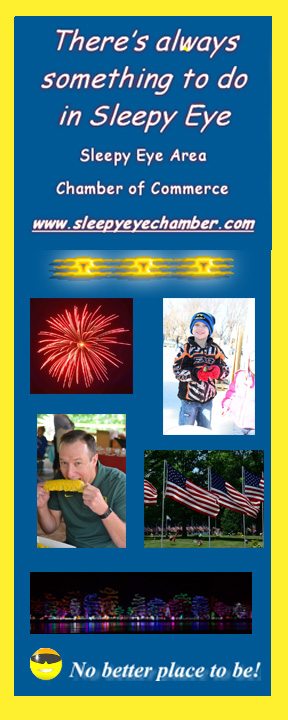Here’s a mental exercise for a winter night. Think on this: Am I better than anyone else?
I don’t mean in skills. I learned long ago there are people better at baseball. That was followed by discovery that there are people better at singing, dancing, running, you name it. Even things I know a little, like writing, there are people much better, which is mildly frustrating.
I don’t mean better in qualities like intelligence or beauty. We all exist somewhere on a range of those and can only play the cards we’re dealt. I don’t mean in wealth. We know that is an incomplete sum of ourselves.
Am I better than anyone else? Am I superior to or more valuable than another? Hopefully our first instinct is, “No, of course not.” It might come to mind that we are all equal under the law. Or that we are equal in the eyes of God.
The Declaration of Independence announced to the world that, “We hold these truths to be self-evident, that all men are created equal…endowed by their Creator with certain unalienable Rights.” There are no words more central to our being a citizen of this country.
Those words were a great leap forward in a time of kings and emperors. That government would be by the governed, and the governed were equal was radical stuff. Of course, we know that in 1776, the authors meant “all white men” are created equal. Time would give the phrase deeper meaning. Women who were chattel, Africans who were slaves, and Natives who were considered savages all have come under the umbrella of “created equal” in the 244 years since.
Deeper than civil declarations, those of us who are believers know that our worth comes from being children of a loving God. That precedes any manmade law. God had each of us in mind for eternity, which is boggling to comprehend. As Christians we believe in our hearts that God so loved us that He gave his son. All of us.
So, notions of equality come from the founding documents and the Bible. Those are beautiful words. Equality is great. Now comes the hard work of living them.
Those words were not rendered in some obvious situations. What was it like to own a slave? It seems a bizarre thought now, but people much like us in this same country did. Your slave was obviously not your equal. They were owned like one owns an animal. The slave owners were Christians which makes us cringe. They even used the Bible to justify slavery.
People much like us marched Jews into gas chambers. Some of them were likely related to us here in Brown County. They had to see Jews as inferior, subhuman. Otherwise, how do you convince yourself in what you are doing? Again, most of them were Christians.
Slavery and the Holocaust were long ago and far away. Easy to dismiss, right? Let’s pull in a little closer to here and now. A few years ago, I spent a couple weeks in the South. It didn’t take much scratching the surface to see divisions. I was vaguely aware of Jim Crow laws but have spent time since reading on that.
After the Civil War, most whites conspired to make sure freed slaves wouldn’t be granted all the benefits of liberty. In fact, few would come their way. They were forced to live in impoverished areas, attend poorly funded schools, work for less, and restricted from voting. It was easy to see Blacks as inferior even if they weren’t slaves.
Jim Crow followed Blacks to the North. Zoning laws, lending practices, and discriminatory hiring worked to suppress minorities across the country. Now Jim Crow-type laws are gone, at least on paper. I suppose things are better. Is racism gone? We wish.
Racism, by definition, means that one thinks they are better than another. Because of skin color, birthplace, religion, or some other way we distinguish ourselves from another. I admit I grew up in a sheltered world where Lutherans and Methodists were the different people. In a way, it was easy for me to judge racism negatively.
Our Midwestern, small-town world has changed. There are others here now. In Sleepy Eye, Hispanics have come to fill necessary positions with businesses in the area. As time passes, they buy homes, send their kids to school, and fold into the community. It is in the same way as every one of our ancestors.
I have thought of racism as harbored in the dark recesses of our souls, and that we had to watch out where it seeped into our conscience. Recently in America, there are groups that don’t even try to hide it. Fringe white nationalist groups have always existed in the shadows. Now they have rallies and Facebook pages.
A while ago I was having a beer with a friend in town. A fellow came in and visited with us. He told us he left another place because there were “too many f—— Mexicans.” I didn’t say anything. Later, in bed, I thought that I should have said something. Not for the unlikely chance of changing anyone’s mind. More to show a shred of integrity to myself.
We just commemorated Pro Life Sunday in our church. I support efforts to reduce and someday eliminate abortions. But I wonder if it’s easy to value a baby we won’t know. What about people who don’t fit into our notion of humans of equal worth? If our concern for babies doesn’t flow to this side of the womb, it seems we dishonor and debase the pro-life movement.
As clear as it is to me that a fetus deserves life, Jesus made this clear: “Truly I tell you, whatever you did for one of the least of these brothers and sisters of mine, you did for me.” What about the refugees and asylum-seekers that our nation has turned its back in large numbers? They seem to be among the least, certainly the poorest and most vulnerable.
Remember that it is just dumb luck that you and I were born in this place and time. But for the grace of God, we could have been born to a young, undernourished mother living in a shanty town on an eroding hillside in Honduras with no hope for the future.
Or is it grace? Jesus also says, “It is easier for a camel to go through the eye of a needle than for a rich man to enter the kingdom of God.” It may be that the path to Heaven is easier for that Honduran child than a well-off white person born in the most privileged time and place on Earth.






